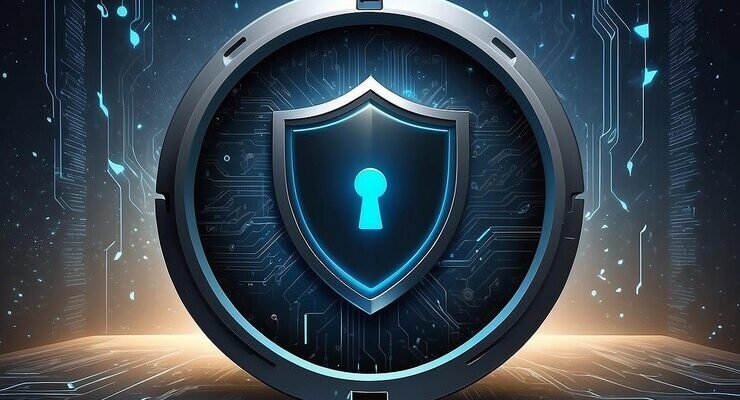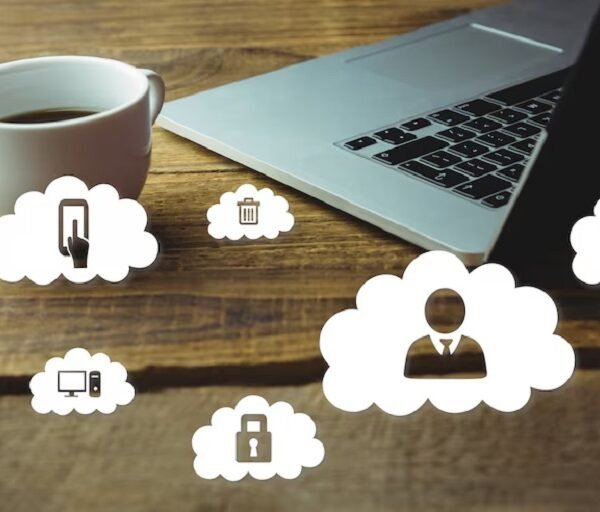How to Stay Safe Online with Tech Security Tips
In today’s digital landscape, staying safe online is more important than ever. As we increasingly rely on the internet for work, communication, entertainment, and more, the risks and threats associated with online activities continue to grow. From data breaches and identity theft to malware and phishing scams, the dangers are real and ever-present. But don’t worry – we’ve got you covered! In this article, we’ll dive into the latest tech security solutions and strategies to help you protect your personal information, secure your networks, and navigate the digital world with confidence. Get ready to level up your online safety game!
Key Takeaways:
- Secure your home Wi-Fi network with strong passwords, encryption, and regular updates.
- Practice safe online shopping habits by using secure connections and knowing the merchant.
- Protect your personal information with reliable passwords, two-factor authentication, and regular data backups.
The Importance of Online Safety
In today’s interconnected world, it’s hard to imagine life without the internet. We use it for everything from staying in touch with loved ones and managing our finances to streaming our favorite shows and shopping for everyday essentials. But as our digital lives expand, so do the risks.
Cyber threats come in many forms, from malicious software that can hijack your computer to phishing emails that trick you into revealing sensitive information. Hackers are constantly developing new and innovative ways to exploit vulnerabilities in our systems and networks, putting our personal data and financial well-being at risk.
That’s why it’s crucial to stay informed and proactive when it comes to online safety. By understanding the threats and implementing the right security solutions, you can protect yourself, your family, and your business from the ever-evolving landscape of cyber threats.
Secure Your Wi-Fi Network
Your home Wi-Fi network is the gateway to your digital life, so it’s essential to keep it locked down tight. Here are some practical tips to help you secure your Wi-Fi and keep the hackers at bay:
- Place your router in a central location. This helps ensure that your Wi-Fi signal reaches all areas of your home while minimizing the risk of outside interference.
- Create a strong Wi-Fi password and change it often. Use a mix of uppercase and lowercase letters, numbers, and special characters to create a password that’s tough to crack. And don’t forget to update it regularly – aim for at least once every few months.
- Change the default router login credentials. Many routers come with default usernames and passwords that are easy to guess. Take a few minutes to change these to something unique and secure.
- Turn on firewall and Wi-Fi encryption. These built-in security features help protect your network from unauthorized access and keep your data safe from prying eyes.
- Create a guest network. If you have visitors who need to access your Wi-Fi, set up a separate guest network to keep your main network secure.
- Use a VPN. A virtual private network (VPN) encrypts your internet connection, making it much harder for hackers to intercept your data.
- Keep your router and devices up to date. Router manufacturers often release updates to fix security vulnerabilities, so make sure to install them as soon as they’re available. The same goes for your connected devices – keep them updated with the latest security patches and software versions.
- Disable remote router access. Unless you absolutely need it, turn off the option to access your router remotely. This helps prevent unauthorized users from accessing your network settings from outside your home.
- Verify connected devices. Regularly check the list of devices connected to your network to make sure there are no unfamiliar or suspicious entries. If you spot something that doesn’t belong, disconnect it immediately.
- Upgrade to a WPA3 router. If you’re in the market for a new router, consider one that supports the latest WPA3 security standard. WPA3 offers enhanced encryption and protection against brute-force attacks, making it a smart choice for anyone serious about Wi-Fi security[1].
| Security Feature | Why It Matters |
|---|---|
| Strong password | Prevents unauthorized access to your network |
| Firewall | Blocks incoming threats and protects your devices |
| Encryption | Scrambles your data to keep it safe from prying eyes |
| Guest network | Keeps your main network secure while allowing visitor access |
| VPN | Encrypts your internet connection for added security |
Online Shopping Safety
Online shopping has revolutionized the way we buy everything from clothes and electronics to groceries and household essentials. But with the convenience of shopping from your couch comes the risk of falling victim to scams, fraud, and identity theft. Here are some expert tips to help you shop safely online:
- Always place orders from a secure connection. Look for the “https” in the website URL and the padlock icon in your browser bar to ensure that your connection is encrypted and your data is protected.
- Know the merchant and their reputation. Before making a purchase from a new website, do some research to make sure the company is legitimate. Check for reviews, ratings, and any complaints filed with the Better Business Bureau.
- Avoid offers that seem “too good to be true.” If a deal seems suspiciously cheap or comes with outrageous promises, it’s probably a scam. Trust your instincts and stick with reputable retailers.
- If you are buying a Gift Card, read the Terms and Conditions. Some gift cards come with hidden fees or expiration dates that can catch you off guard. Always read the fine print before making a purchase.
- Always check the company’s shipping terms. Make sure you understand the estimated delivery time, shipping costs, and return policy before placing your order. If a company doesn’t provide this information upfront, it’s a red flag.
- Use a reliable internet security program. Invest in a comprehensive security solution that includes features like real-time threat detection, automatic updates, and safe browsing tools. This helps protect your devices and personal information while you shop online[2][4].
Protecting Personal Information
In the age of social media and online everything, protecting your personal information is more important than ever. From your name and address to your Social Security number and financial data, hackers are always on the lookout for sensitive information they can use to steal your identity or drain your bank account. Here are some practical tips to help you safeguard your personal information online:
- Create reliable passwords. Use a mix of uppercase and lowercase letters, numbers, and special characters to create strong, unique passwords for each of your online accounts. Avoid using the same password across multiple sites, and never share your passwords with anyone.
- Know the signs of unsecure websites. Before entering any personal information on a website, make sure it’s secure. Look for the “https” in the URL and the padlock icon in your browser bar, and be wary of any site that asks for sensitive data like your Social Security number or bank account information.
- Enable two-factor authentication. Many online services now offer two-factor authentication, which requires a second form of verification (like a code sent to your phone) in addition to your password. Enabling this feature adds an extra layer of security to your accounts.
- Delete old/unused accounts. If you have online accounts that you no longer use, delete them. Leaving them open can make you more vulnerable to hacks and data breaches.
- Take advantage of private browsing. When using a public computer or unsecured network, use your browser’s private or incognito mode to avoid leaving behind any personal information or browsing history.
- Protect mobile devices. Make sure your smartphones and tablets are password-protected and have the latest security updates installed. Avoid using public Wi-Fi networks to access sensitive information, and be cautious about the apps you download.
- Explore anonymous search engines. If you’re concerned about your online privacy, consider using an anonymous search engine like DuckDuckGo or Startpage. These search engines don’t track your searches or collect your personal data.
- Backup data regularly. Regularly backing up your important files and data can help protect you in the event of a ransomware attack or other cyber threat. Use an external hard drive or cloud storage service to create secure backups of your photos, documents, and other valuable information[3].
Conclusion
Staying safe online requires a combination of awareness, proactive measures, and the right tech security solutions. By securing your Wi-Fi network, practicing safe online shopping habits, and protecting your personal information, you can significantly reduce your risk of falling victim to cyber threats.
Remember, the internet is an incredible tool that has transformed the way we live, work, and connect with each other. But like any powerful tool, it requires responsible use and a commitment to security. By following the tips and strategies outlined in this article, you can enjoy all the benefits of the digital age while keeping yourself, your family, and your business safe from harm.
So what are you waiting for? Start implementing these essential tech security tips today and take control of your online safety. Together, we can create a safer, more secure digital world for everyone.











